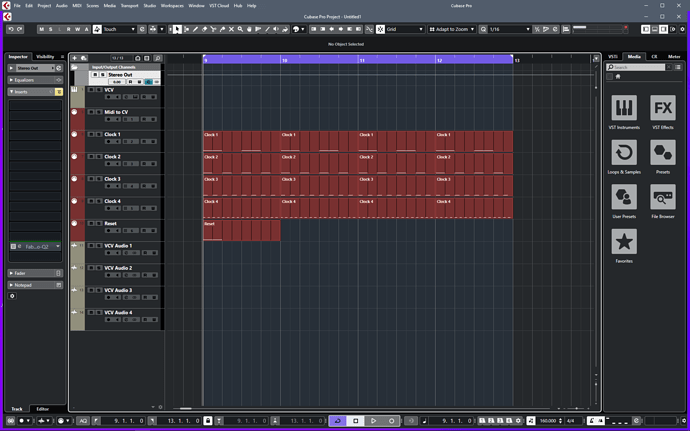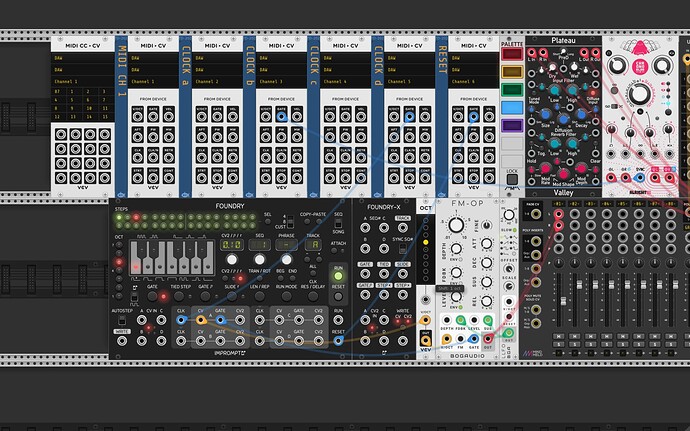Having downloaded and experimenting with the DAW - WAVEFORM FREE, I realised that the same syncing issue was present here as well.I went back to CUBASE and found a solution to our little problem. What I have done is to take CLOCKED (or any other clock module) out of the equation and replaced it with gates and resets sent from Cubase. The screen shots below should be clear.
This set up provides rock solid sync, run and reset. You can time stretch your clock track parts to get any clock divisions/multiplyers, swing quantise or imitate the pulse width function by altering the length/position of the notes. So far, I can’t see any CLOCKED function not being available with this approach. If anything, this solution is more flexible.
